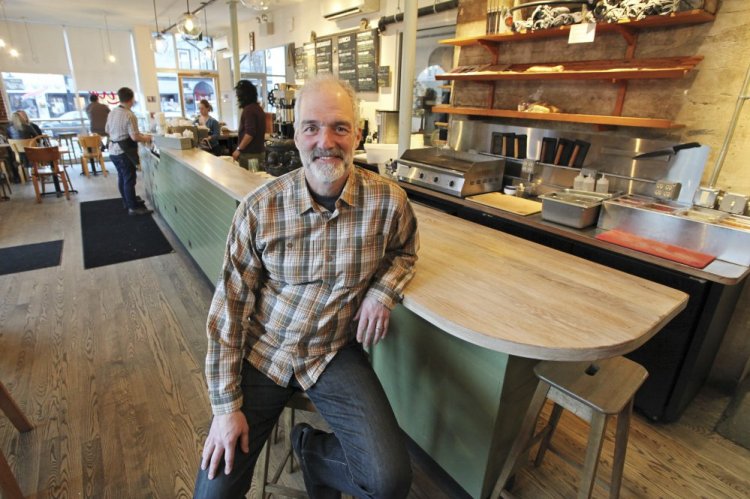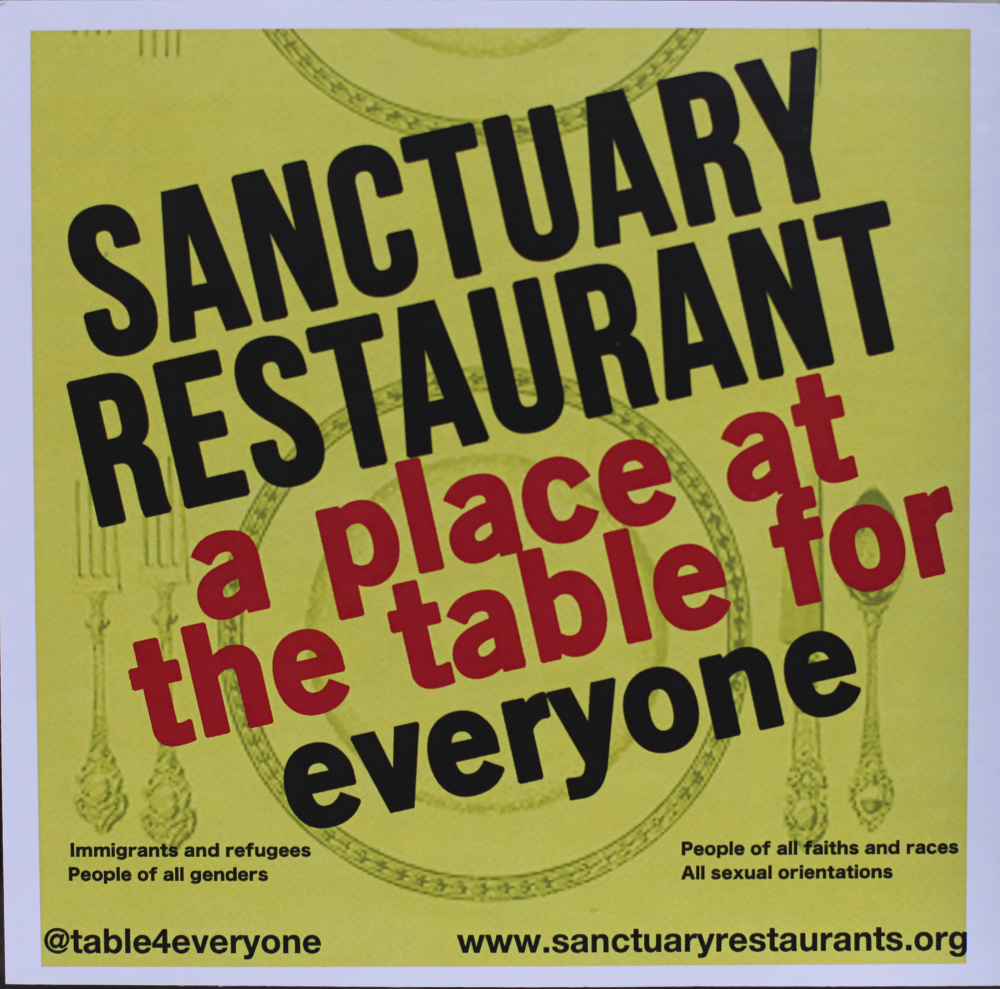Michael Landgarten does not hire undocumented workers at his two Kittery restaurants, and he hasn’t had any major incidents targeting the immigrants he does employ. Nevertheless, he has declared Bob’s Clam Hut and Lil’s Cafe as “sanctuary restaurants” that protect immigrant workers from discrimination and harassment.
Landgarten said he’s heard from plenty of other restaurants around the country about the “considerable suffering in the industry just from the fear of deportation or lost staff and lost relationships that have been long and strong and close.”
“We think that’s the most patriotic stance, and the one that’s most true to our values as Americans,” he said.
Landgarten’s restaurants have joined the national restaurant sanctuary movement started by Restaurant Opportunities Centers United and other organizations whose mission is to protect undocumented workers in the restaurant industry, as well as Muslims and people who identify as lesbian, gay, bisexual, transgender and questioning. It’s the undocumented workers in the industry that have gotten the most attention. Restaurant Opportunities Centers United estimates that there are 1.3 million immigrants working in the restaurant industry without legal permission.
Most immigrants who work in Maine restaurants, however, are here legally on temporary visas, according to Landgarten and the Maine Restaurant Association.
“I don’t really believe undocumented immigrants are a big part of the industry here in Maine,” said Steve Hewins, president of the restaurant association.
Landgarten estimates that perhaps 10 percent of his summertime employees are in the country on J-1 student visas and H2B visas for seasonal, non-agricultural workers. Most come here from Romania, Jamaica and Turkey.
“Many of them are repeats,” Landgarten said. “They come year after year because they’ve developed relationships with our staff and our company, and we’ve become close, and that’s created a great deal of diversity and of acceptance and appreciation for different cultures that we wouldn’t necessarily get if we didn’t employ those folks because we’re in Maine. Our region in southern Maine doesn’t have tremendous diversity.”
Hewins and Greg Dugal, director of governmental affairs at the Maine Restaurant Association, estimate there are about 5,000 J-1 visa holders working in Maine restaurants each year, and roughly 2,500 H2B workers. That’s about 9 percent of the 85,000 workers in the restaurant and hotel sector in Maine.
Hewins said the hospitality industry is unable to fill these jobs with locals because of Maine’s low unemployment and aging population.
“Right now we are struggling to find workers to support an industry that’s growing here in Maine,” he said, “and I’m concerned with Trump and his policies about immigration, that they’ll put a curb on those temporary worker programs as part of a roll-up into a larger immigration re-boot, so to speak.”
He said the problem is especially acute in communities outside of Portland and other popular tourist destinations such as Bar Harbor.
“I talked to one bed-and-breakfast owner who couldn’t open his restaurant until June because he didn’t have enough workers in the dining room,” Hewins said.
Nationally, about 80 restaurants are part of the sanctuary movement. Restaurants that join the sanctuary program agree to anti-discrimination policies and put up signs on windows that pronounce their sanctuary status. Landgarten said he has just received his signs, which he considers “quite harmless,” but hasn’t posted them yet because he wants to discuss the program with his staff first.
Landgarten said for the most part his customers have been polite to his immigrant employees, and there has been little harassment. When he’s expressed his views on immigration publicly in the past, some customers have called him to state their disapproval and complain about him hiring “folks from away.”
“We’ve had incidents,” he said, “but I would say the vast majority are pretty accepting. We try not to take political stances that are too divisive, and I may be naïve, but I don’t think this one really is. I just think this is a statement that everyone’s welcome.”
Meredith Goad can be contacted at 791-6332 or at:
mgoad@pressherald.com
Twitter: MeredithGoad
Copy the Story LinkSend questions/comments to the editors.





Success. Please wait for the page to reload. If the page does not reload within 5 seconds, please refresh the page.
Enter your email and password to access comments.
Hi, to comment on stories you must . This profile is in addition to your subscription and website login.
Already have a commenting profile? .
Invalid username/password.
Please check your email to confirm and complete your registration.
Only subscribers are eligible to post comments. Please subscribe or login first for digital access. Here’s why.
Use the form below to reset your password. When you've submitted your account email, we will send an email with a reset code.